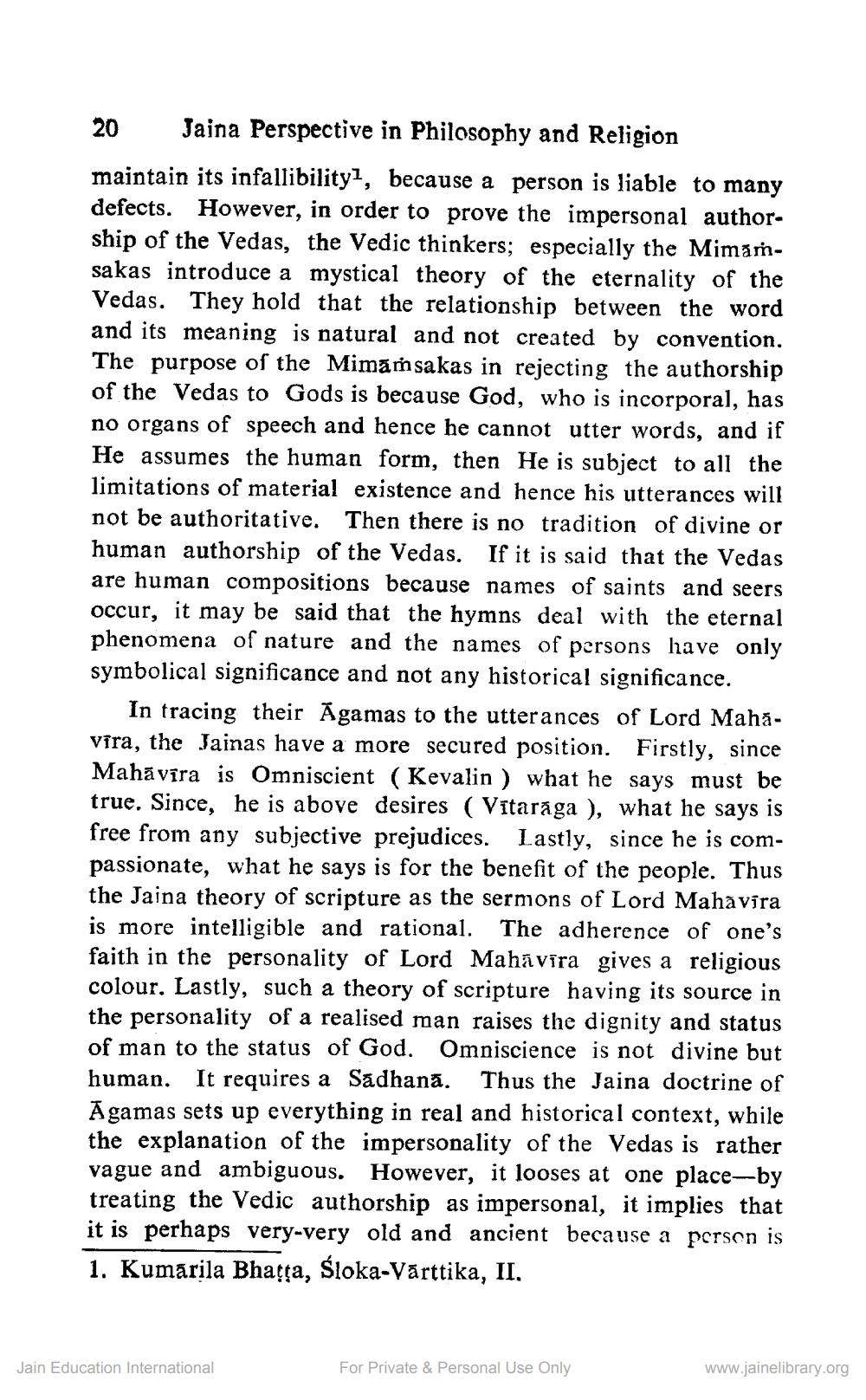________________
20 Jaina Perspective in Philosophy and Religion
maintain its infallibility1, because a person is liable to many defects. However, in order to prove the impersonal authorship of the Vedas, the Vedic thinkers; especially the Mimamsakas introduce a mystical theory of the eternality of the Vedas. They hold that the relationship between the word and its meaning is natural and not created by convention. The purpose of the Mimamsakas in rejecting the authorship of the Vedas to Gods is because God, who is incorporal, has no organs of speech and hence he cannot utter words, and if He assumes the human form, then He is subject to all the limitations of material existence and hence his utterances will not be authoritative. Then there is no tradition of divine or human authorship of the Vedas. If it is said that the Vedas are human compositions because names of saints and seers occur, it may be said that the hymns deal with the eternal phenomena of nature and the names of persons have only symbolical significance and not any historical significance.
In tracing their Agamas to the utterances of Lord Mahāvira, the Jainas have a more secured position. Firstly, since Mahāvīra is Omniscient (Kevalin) what he says must be true. Since, he is above desires (Vitaraga), what he says is free from any subjective prejudices. Lastly, since he is compassionate, what he says is for the benefit of the people. Thus the Jaina theory of scripture as the sermons of Lord Mahāvīra is more intelligible and rational. The adherence of one's faith in the personality of Lord Mahāvīra gives a religious colour. Lastly, such a theory of scripture having its source in the personality of a realised man raises the dignity and status of man to the status of God. Omniscience is not divine but human. It requires a Sadhanā. Thus the Jaina doctrine of Agamas sets up everything in real and historical context, while the explanation of the impersonality of the Vedas is rather vague and ambiguous. However, it looses at one place-by treating the Vedic authorship as impersonal, it implies that it is perhaps very-very old and ancient because a person is 1. Kumarila Bhaṭṭa, Śloka-Varttika, II.
Jain Education International
For Private & Personal Use Only
www.jainelibrary.org




